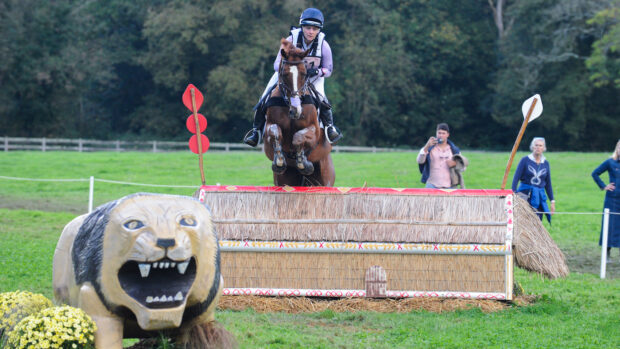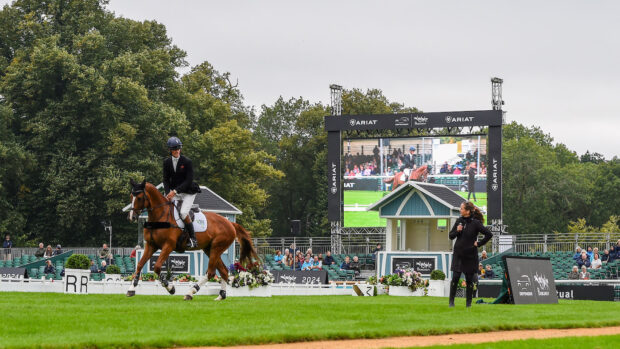Italian scientists have cloned the first horse, reports today’s issue of science magazine Nature (7 August). Prometea, a two-month-old Haflinger foal, was born on May 28 and is genetically identical to the mare that gave birth to her.
A team of 10 geneticists and technicians from the Laboratory for Reproductive Technology in Cremona, Italy, collected a skin cell from the mare and fused its nucleus with an empty egg from another horse. The cultured embryo was then implanted in the mare’s womb and Prometea, named after the mythical hero who stole fire from the Gods, was born after 336 days.
Delivering her cost around £100,000 because scientists had to undertake extensive research to obtain one successful pregnancy.
Beside being the world’s first horse clone – earlier in the year, a mule called Idaho Gem was cloned in the United States – Prometea is unique because it is the first time that a female mammal has given birth to a copy of herself. So far, embryos have been implanted in the womb of a different animal from the one being cloned.
Laboratory for Reproductive Technology Director, Cesare Galli told HHO: “It was long thought that, for a pregnancy to be successful, the foetus must be recognised as different from its mother. Prometea demonstrates that this is not the case and that a lot remains to be understood about the immunological aspects of pregnancy in mammals.”
Medical benefits represent the long-term aim of the experiment, according to Cesare: “Cloning a different species – and comparing our results with the more established findings for sheep and cows – allows us to understand more about these mechanisms. The real goal for cloning, which applies not only to horses but to any animal, is to understand how you get from embryos to tissue and from tissue to tumour in order to cure it.”
Cesare thinks that the technology which delivered Prometea will also have a significant effect the horse racing and show jumping industries.
“The obvious advantage lies in cloning geldings, such as the one who won the Kentucky Derby earlier in the year. We have already received some interest about this. Clearly, rules would have to change but racing bodies may well consider doing this in the future.”
A secondary application of the research lies in understanding the relative importance of nature versus nurture in the making of a champion.
“With cloning, genes are identically reproduced. A horse and its clone share the very same genetic background but this is not to mean that they will achieve the same performances. Cloning could throw some light on the impact of external factors such as training.”
However, animal welfare campaigners have voiced strong concerns about the birth of Prometea. The RSPCA views cloning as “a serious and totally unnecessary exploitation of animals”.
Dr Maggy Jennings, who heads the charity’s research animal department, said that “the entire focus always seems to be on the excitement of the science. There is no mention of the suffering of the huge numbers of horses that have been involved over the past few years in producing this one cloned animal.
“The extremely low success rates of live clones in this project highlights the massive inefficiency of cloning and shows why this procedure should never be attempted for such trivial purposes.”
Unsurprisingly, Cesare disagrees. “I don’t think the RSPCA really understand how this technique works. While it is true that only few cultured oocytes (unfertilised eggs which have been manipulated in the lab) survive to be implanted, at no stage does this process cause animal suffering. We obtained empty eggs from mares that had been slaughtered for other, non-scientific reasons and cultured them in a lab for seven days.
“The only ‘exploitation’, if it can be defined as such, lies in implanting the embryos on 9 mares through a non-invasive procedure. Of these, eight aborted within the first 30 days. One lost the foetus at six months for a reason that we believe is not connected to cloning (premature separation of the placenta) and one delivered successfully, so there really was no suffering involved.”
Picture by kind permission of Giovanna Lazzari, from the Laboratory of Reproductive Technology




